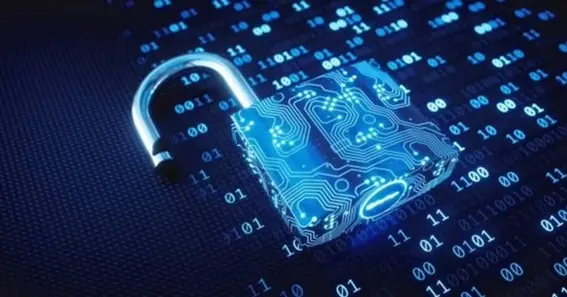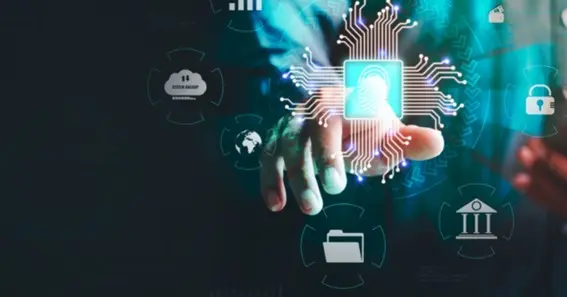Cryptanalysis is used to understand and break codes that keep information secure. This process is crucial in various fields, from improving digital security to historical espionage. Let’s dive into how cryptanalysis is used and why it matters.
What Is Cryptanalysis?
Cryptanalysis is used to study and break cryptographic systems, which are designed to protect information by transforming it into a secret code. By analyzing these systems, cryptanalysts seek to uncover weaknesses that could allow unauthorized access to protected data. Essentially, cryptanalysis helps us figure out how easy or hard it is to crack a given code. Cryptanalysis is used to break encrypted codes and protect secure communication systems.
How Cryptanalysis Is Used?

Cryptanalysis is used in several important ways:
- Enhancing Security: One of the main uses of cryptanalysis is to make security systems stronger. Cryptanalysts examine existing encryption methods to find vulnerabilities. Identifying these weaknesses, helps improve encryption techniques, ensuring that they can better withstand attacks. This is crucial for keeping sensitive information, like personal details and financial transactions, safe.
- Decoding Messages: Historically, cryptanalysis is used to break codes during conflicts or in espionage. During World War II, for example, cryptanalysts played a key role in deciphering enemy communications. This ability to decode messages was vital for strategic planning and gaining an advantage over opponents.
- Designing New Encryption Methods: Understanding how codes can be broken is essential for developing stronger encryption methods. Cryptanalysis is used to test and refine new cryptographic systems. By knowing how existing codes are cracked, researchers can create more robust encryption techniques that are harder to break.
- Testing Security Systems: In today’s world, cryptanalysis is used by companies to test their own security measures. They employ cryptanalysts to attempt to break their own codes and identify any weaknesses before real hackers can exploit them. This proactive approach helps in strengthening security systems and protecting against potential breaches.
- Educational and Research Purposes: Cryptanalysis is used in academic settings to study encryption techniques and their vulnerabilities. Researchers and students use cryptanalysis to explore how different cryptographic systems work and to develop new theories and methods. This ongoing research contributes to advancements in cybersecurity and cryptography.
Real-Life Examples

Here’s how cryptanalysis is used in everyday scenarios:
- Banking and Finance: Banks rely on encryption to safeguard financial transactions. Cryptanalysis is used to ensure that these encryption methods are effective in preventing fraud and unauthorized access. Regular testing and improvement of these systems help protect your money and personal information.
- Government Communications: Governments use encrypted communication channels to handle sensitive information securely. Cryptanalysts are employed to make sure these channels are protected against interception and unauthorized access. By ensuring the strength of these encryption methods, cryptanalysis helps in maintaining national security.
- Online Security: Every time you log into your email or social media account, encryption is working to keep your data safe. Cryptanalysis is used to continuously improve these security measures. By identifying potential vulnerabilities, cryptanalysts help keep your online accounts secure from cyber threats.
Conclusion
In summary, cryptanalysis is used to enhance the security of encrypted information by identifying and fixing weaknesses in cryptographic systems. Whether it’s improving existing methods, breaking codes, or developing new encryption techniques, cryptanalysis plays a vital role in protecting our digital world. By understanding how cryptanalysis is used, we can better appreciate the efforts to keep our information secure and private.
FAQ
What Is Cryptanalysis Used For?
Cryptanalysis is used to study and break cryptographic systems, which are designed to protect information through encryption. By analyzing these systems, cryptanalysts identify weaknesses and vulnerabilities, helping to enhance security measures and develop stronger encryption methods.
How Does Cryptanalysis Improve Security?
Cryptanalysis is used to uncover flaws in existing encryption methods. By finding and addressing these weaknesses, cryptanalysts help to strengthen security systems, making them more resistant to attacks and ensuring that sensitive information remains protected.
In What Historical Contexts Has Cryptanalysis Been Used?
Historically, cryptanalysis is used in military and espionage contexts. For example, during World War II, cryptanalysts used their skills to decode enemy communications, which played a crucial role in strategic planning and gaining advantages over adversaries.
How Is Cryptanalysis Used In Modern Technology?
In modern technology, cryptanalysis is used to test and improve digital security systems. Companies and organizations employ cryptanalysts to try and break their encryption methods, identify vulnerabilities, and strengthen their defenses against potential cyber threats.
What Role Does Cryptanalysis Play In Academic Research?
In academic research, cryptanalysis is used to study and understand various encryption techniques and their weaknesses. Researchers use cryptanalysis to develop new theories, improve existing methods, and contribute to advancements in the field of cybersecurity and cryptography.
Is Cryptanalysis Legal?
Cryptanalysis is legal when used ethically, such as in cybersecurity or for authorized security testing, but illegal when used to hack systems or steal information.
check this post Is Jesus A Muslim
We have covered all the below topics in the above article
Cryptanalysis purpose
Decrypting messages
Breaking encryption
Code-breaking techniques
Cryptographic attacks










